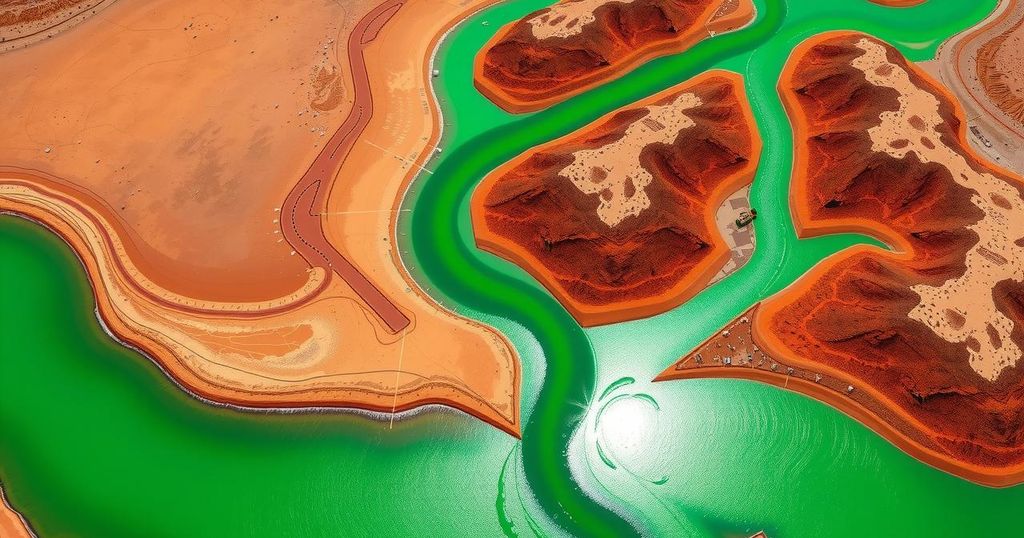Morocco’s Water Highway: Addressing Urban Water Needs Amid Climate Concerns

Morocco’s “water highway” project aims to redirect Northern river surpluses to supply water to urban centers, particularly Rabat and Casablanca, amid ongoing drought challenges and climate change. With significant investments already made, experts express concerns over long-term sustainability as climate impacts threaten future water availability. Immediate relief has been achieved, but the need for adaptive solutions remains critical.
Morocco has allocated substantial resources, estimated at $728 million, to establish a so-called “water highway,” which redirects excess water from the Sebou River to alleviate the water supply challenges faced by major cities such as Rabat and Casablanca. This initiative aims to ensure these urban areas have adequate drinking water in the face of severe climatic variations affecting rainfall distribution.
In recent developments, Morocco’s capital, Rabat, came dangerously close to depleting its primary water reservoir, underscoring the urgency of the project. The water highway is designed to channel water from the northern river basins, a region that experiences about 53% of the nation’s rainfall despite covering only 7% of the total land area.
A diversion dam in Kenitra captures the excess flow of the Sebou River, which is then processed and transported through a 67-kilometre underground canal. Since its inauguration in August, over 700 million cubic metres of water have been supplied to Rabat and Casablanca, mitigating the immediate water crisis for approximately 12 million residents.
However, experts express concerns regarding the long-term sustainability of this project. After enduring six consecutive years of drought, Morocco’s annual water supply has declined significantly from 18 billion cubic metres in the 1980s to a mere five billion currently. Additionally, recent rainfall levels remain 75% lower than historical averages, suggesting ongoing water stress.
The implications of climate change are alarming, with researchers predicting significant reductions in rainfall in northern regions over the next 60 years. This trend may jeopardize the water surpluses necessary for the continued effectiveness of the water highway. The recommendation to possibly scale back this project has been encouraged due to these unforeseen challenges.
Moreover, increasing demands for irrigation water in Morocco, particularly in agriculture—a sector that engages nearly one-third of the workforce—further complicate water management strategies. Experts propose that evolving water efficiency practices need to be urgently adopted by farmers to manage resources prudently. Furthermore, calls for investment in desalination technologies have been made as a viable long-term solution for providing drinking water in urban populations.
In summary, while Morocco’s investment in the water highway project has provided immediate relief for major cities facing acute water shortages, its sustainability remains in question. The ongoing impact of climate change poses significant threats to the viability of water surpluses in northern river basins, potentially complicating future water resource management. It is imperative for policymakers to explore alternative water solutions and adaptive agricultural practices to navigate impending challenges.
Original Source: www.thedigitalcourier.com






